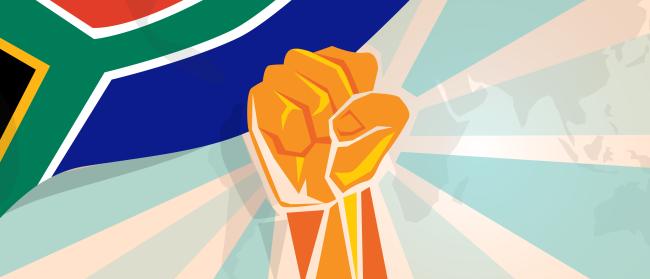Soft Power and Influence
The expression "soft power" was popularized by Joseph Nye in 1990. It refers to the ability to attract and persuade through a form of seduction. Influence strategies are becoming increasingly sophisticated.
Related Subjects

Hashtag and Political Resistance Movements in Southern Africa
What is the political significance of Southern Africa’s “hashtag movements”, socio-political campaigns using social media to disseminate information and to mobilise concerned and previously quiet segments of the public?

The Russian Informational and Digital Influence Strategy in Europe
The article discusses Russia’s informational and digital strategy towards Europe. It focuses on its content, instruments, infrastructures and techniques.

Russia in the Middle East: Back to a “Grand Strategy” – or Enforcing Multilateralism?
Russian military intervention in Syria was not an attempt to exert dominance as a hegemonic power in the Middle East.

Middle East, the new "Great Game"
Will a divided Middle East become the center of a new “Great Game”? The world’s global powers are aligned in it: the United States, falsely tempted by retraction; Russia, establishing its position in an unexpected state of play, France, destabilized by the contradictions of its own policy… In addition are tussles for regional hegemony between Iran, Turkey, and Saudi Arabia.

“Minilateralism”: A New Form of Defense Cooperation
Multilateralism has played a significant role in international cooperation.

The Internet and the Flaws of Multistakeholderism
The Internet Governance debate opposes multilateral thinking, favoring the role of State and interstate bodies, with a multistakeholder model, which aims to unite all concerned actors: states, business, experts, academics and internet groups, among others.
The Digital Tsunami. Natural Disasters Management in the Age of Social Media
Social media enable new means of natural disasters management. It is now easier to locate victims, to find shelters, or to coordinate humanitarian aid. Prevention has also become more efficient. From now on, this tool will be more and more present in the field of natural disasters management; however, it also poses some risks because of its open nature, which makes control more difficult.
What Role for the EU in Doha?
Historical leader of the fight against climate change, the European Union’s influence declined in Copenhagen. This opened the way to the so-called BASIC countries to show their willingness to become a driving force in the international climate agenda. Interestingly enough, the Copenhagen conference also introduced a welcome shift in the traditional UN separation between developed and non-developed countries.
The Religious Diplomacy of the Russian Federation
The Russian Federation is shaping its religious diplomacy (i.e., in brief, the use of the religious factor in foreign policy) and exercises it with a growing efficiency. This is, to a certain degree, a consequence of processes taking place in Russia, namely, first and foremost, the solving of the crisis of identity and values, and, closely connected with this, the renaissance of religion in Russian political and social life.
France's Partner on a Pedestal: A View Driven by Pragmatism and Envy
This paper brings together contributions from a cross-section of EU member states and the Gallup World Poll survey on the question of how Germany is being viewed at this time of economic and political crisis.
Support independent French research
Ifri, a foundation recognized as being of public utility, relies largely on private donors – companies and individuals – to guarantee its sustainability and intellectual independence. Through their funding, donors help maintain the Institute's position among the world's leading think tanks. By benefiting from an internationally recognized network and expertise, donors refine their understanding of geopolitical risk and its consequences on global politics and the economy. In 2025, Ifri supports more than 80 French and foreign companies and organizations.








